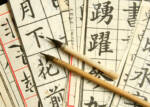A Tourist’s Guide to Chinese Money
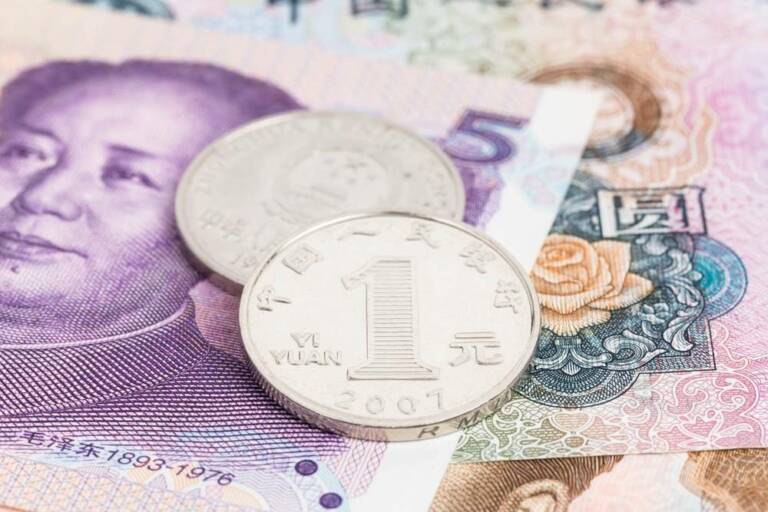
The subject of money in Chinese culture is often a bit tricky to get your head around. The unique heritage surrounding Chinese money isn’t just a medium of exchange but a rich tapestry woven with history, modernity, and governmental pragmatism.
This guide aims to unravel the mystery surrounding what Chinese money is called, the dynamics of currency in China, and the practicalities of getting the best Chinese exchange rate for a traveler.
As you prepare to explore the scenic landscapes, bustling cities, or serene villages, understanding the financial intricacies is crucial, given that foreign notes are not commonly accepted.
What’s the currency of China?
Renminbi, abbreviated as RMB, is the official currency of the People’s Republic of China. The term Renminbi directly translates to People’s Currency in English. The Renminbi is issued by the People’s Bank of China, the monetary authority in China.
In everyday transactions and the international foreign exchange market, the currency is often referred to by its unit, the yuan (CNY). Each yuan is subdivided into 10 jiao, and each jiao is divided into 10 fen. The term Chinese money can refer to the Renminbi in a broader sense, encompassing yuan, jiao, and fen, although in common usage, it often refers specifically to the yuan.
The Chinese yuan is issued in various denominations through coins and banknotes, each of different values. On the global financial stage, the yuan operates under a managed floating exchange rate system. This means that its value is primarily determined by market forces such as supply and demand.
However, the Chinese government retains the ability to intervene in the foreign exchange market to stabilize or increase the value of the yuan when needed. This intervention helps to maintain a level of economic stability within the country by mitigating excessive fluctuations in the currency’s value, which could potentially harm the Chinese economy.
Through this system, a balance is achieved between allowing the yuan to respond to market dynamics and ensuring control to maintain economic stability.
Common Chinese banknotes and coins
Examining Chinese money showcases a range of denominations in circulation, including 1, 5, 10, 20, 50, and 100 yuan banknotes and 1 yuan coins. These denominations have unique pronunciations in Chinese, reflecting the language and culture. Let’s break these down a bit.
1 Yuan (CNY)
Pronunciation: yī yuán (一元)
Comparison:
- Euro: Approximately 0.13 EUR
- Dollar: Approximately 0.137 USD
- Pound: Approximately 0.11 GBP.
5 Yuan (CNY)
Pronunciation: wǔ yuán (五元)
Comparison:
- Euro: Approximately 0.65 EUR
- Dollar: Approximately 0.685 USD
- Pound: Approximately 0.57 GBP.
10 Yuan (CNY)
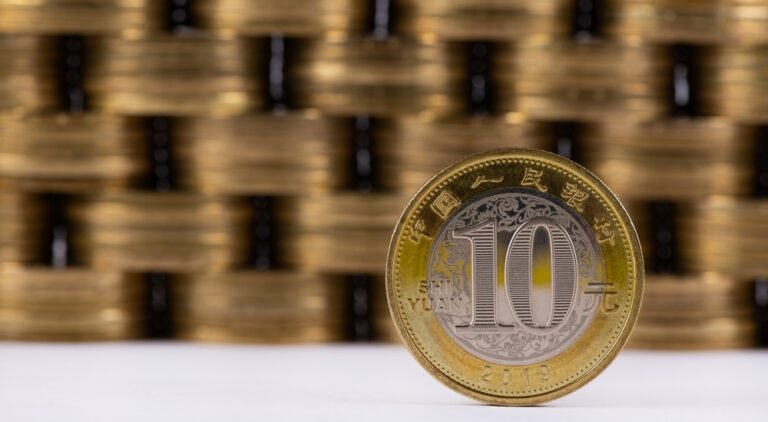
Pronunciation: shí yuán (十元)
Comparison:
- Euro: Approximately 1.3 EUR
- Dollar: Approximately 1.37 USD
- Pound: Approximately 1.15 GBP.
20 Yuan (CNY)
Pronunciation: èr shí yuán (二十元)
Comparison:
- Euro: Approximately 2.6 EUR
- Dollar: Approximately 2.74 USD
- Pound: Approximately 2.30 GBP.
50 Yuan (CNY)
Pronunciation: wǔ shí yuán (五十元)
Comparison:
- Euro: Approximately 6.5 EUR
- Dollar: Approximately 6.85 USD
- Pound: Approximately 5.74 GBP.
100 Yuan (CNY)
Pronunciation: yī bǎi yuán (一百元)
Comparison:
- Euro: Approximately 13 to 13.18 EUR
- Dollar: Approximately 13.7 to 13.97 USD
- Pound: Approximately 11.48.
These comparisons are based on recent exchange rates and are likely to vary slightly depending on the source and the time of conversion. For a more accurate comparison, it’s always best to check a reliable financial news service or contact a currency exchange provider.
It’s important to note that smaller coins are becoming less common in China due to inflation, which reduces their purchasing power. Plus, the trend toward digital payments and the influence of the Chinese exchange rate on purchasing power contribute to the changing usage of these denominations in daily transactions.
The currency in China is adapting to both economic and technological changes, showcasing the country’s evolving nature of monetary transactions. That’s why it’s so important to have some understanding of Chinese currency in advance of your trip.
Related Reading: Numbers in Chinese: How to Count And More.
Exchanging foreign currency
Starting the process of exchanging your native currency for Chinese money introduces you to the exciting (!) world of Chinese exchange rate dynamics. This exchange rate is a vital financial metric that can be influenced by governmental actions to maintain economic stability.
The Chinese government may intervene in the currency market to control extreme fluctuations and ensure a stable financial environment, affecting the rate at which you can exchange your currency for the Chinese yuan.
Planning ahead is a practical approach when dealing with currency exchange. For instance, booking tours in advance can provide financial predictability amidst the often unpredictable nature of exchange rate fluctuations. By doing so, you can have a clearer budget for your trip and avoid unexpected costs that might arise from unfavorable shifts in the exchange rate.
Plus, paying a deposit to lock in the current exchange rate could be a wise decision if you’re engaging in activities or making reservations that allow for it. This is particularly relevant if indicators or financial forecasts suggest that currency values may experience significant changes soon. By locking in the current rate with a deposit, you create a buffer against potential financial uncertainty that could arise from a shift in the
Chinese exchange rate.
Of course, familiarizing yourself with the common channels for currency exchange and the associated fees is advisable. It’s always smart to compare rates from different exchange service providers to ensure you’re getting the most value for your money.
While the process of exchanging currency may seem a little confusing, being informed and taking proactive steps can contribute to a more favorable financial position during your visit to China. Of course, if it all gets a bit frustrating, learn some Chinese cuss words to help vent.
Related Reading: Drink like a Local — A Guide to Alcohol in China
Getting cash in China
In recent years, China has modernized its financial infrastructure, making it easier for residents and visitors to access cash when they need it. ATMs are widespread across urban and many rural areas, serving as a convenient means to withdraw Chinese money.
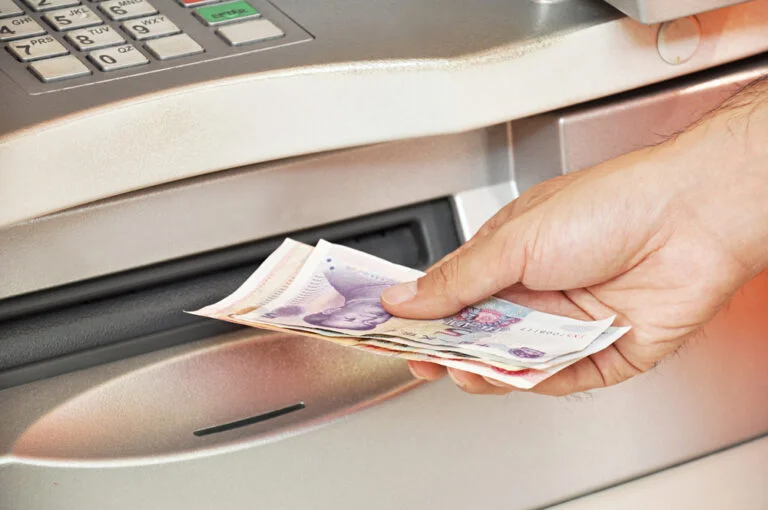
These machines are compatible with various foreign debit and credit cards, allowing for easy access to the local currency. However, it’s important to note that using foreign cards can incur transaction fees, which can add up over time. So it’s advisable to check with your bank regarding international withdrawal fees so you can budget accordingly.
In addition to ATMs, some international banks have branches in China, providing another avenue for accessing cash. It might be worth checking if your bank has a presence in China, as this could potentially save on transaction costs.
The trend in China is moving towards digital payments, with platforms like WeChat Pay and Alipay dominating the market. The use of traveler’s checks has significantly declined in China, as they are no longer commonly accepted. This shift underscores the importance of planning how you will access and manage money in Chinese currency during your stay.
Having some cash on hand for smaller expenses or in areas where digital payments or credit cards are not as widely accepted is always advisable. Being prepared with a mix of cash, a usable card, and an understanding of the digital payment landscape can contribute to a smoother financial experience while navigating the economic terrain in China.
It’s always prudent to have a financial strategy in place to ensure you can enjoy your visit without monetary concerns overshadowing your experience.
Related Reading: 50 Chinese Slang Words to Make You Sound Like A Native
Avoiding counterfeit bills
Despite the efforts to curb counterfeiting, the issue persists to some extent. Being vigilant and knowing what to look for in legitimate currency can help avoid falling victim to counterfeit bills, particularly when dealing with Chinese money. Each denomination of the Chinese yuan has distinct features that help verify its authenticity.
From the corner store where you grab a snack to the taxi ride downtown and the quaint restaurant you choose for dinner, there’s a chance you may encounter both genuine and counterfeit Chinese currency.
While withdrawing from ATMs of reputable banks lessens the risk, receiving counterfeit notes, especially in larger denominations, is a rare yet possible scenario. Here’s a handy guide on what to watch out for to ensure the money in your wallet is genuine:
Soundcheck
Gently flutter the banknote without crumpling it and listen to the sound it makes. Genuine banknotes have a clear and crisp rustling sound, while counterfeit ones may sound dull or muffled.
Watermark verification
Authentic banknotes have a distinct watermark. The 5, 10, and 20 yuan notes feature unique floral designs, whereas the 50 and 100 yuan notes display Chairman Mao’s face. Hold the note against the light to check the clarity of these designs; they should be clear and well-defined as opposed to the blurry or ill-defined images on counterfeit notes.
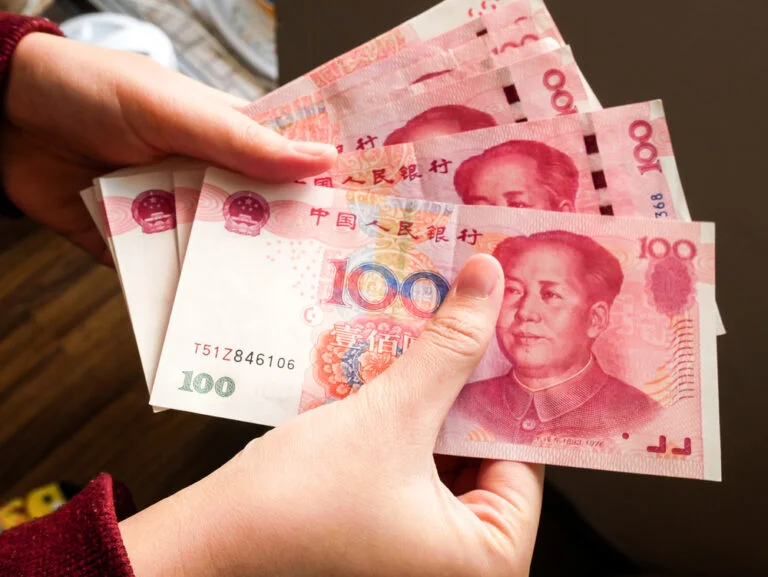
Texture test
Feel the texture of Chairman Mao’s portrait on the right side of the banknotes. Genuine notes have a slightly rough texture with raised printing, unlike the smooth finish on counterfeit notes. The embossed texture on the phrase “Zhongguo renmin yinhang” should also be noticeable.
Translucent value check
Near Chairman Mao’s image, check for a secondary translucent monetary value. When tilted at a 180-degree angle towards the light, this value should be visible and clear on genuine notes, whereas it may appear unclear or absent on counterfeit ones.
Security line inspection
Genuine banknotes have a metallic security line interwoven within the paper, unlike counterfeit notes, where this line may just be printed on the surface.
Pattern and serial number alignment
Check for any mismatches between patterns on either side of the note or irregular gaps in the serial number, and verify the clarity of the colorless fluorescent value at the top under ultraviolet light. Genuine notes have precise printing without discrepancies.
By paying attention to these details, you’ll be better equipped to differentiate between real and counterfeit Chinese currency, ensuring a hassle-free financial experience during your Chinese adventure.
Using other forms of payment, such as credit cards or mobile payment platforms like WeChat Pay and Alipay, can also reduce the risk of encountering counterfeit currency. However, these platforms often require a Chinese bank account, which might not be an option for short-term visitors.
If you suspect you’ve received a counterfeit bill, it’s advisable to report it to the local authorities. Keeping a watchful eye and following best practices can significantly reduce the risk of financial loss due to counterfeit currency, ensuring a safer financial experience while navigating the monetary landscape in China.
Want to learn some basic Chinese phrases and words? Here are 22 good Chinese TV shows to learn Mandarin.
Monetary matters in the Middle Kingdom
Exploring the financial landscape in China as a tourist encompasses a spectrum where cash, cards, and mobile payments are the principal actors. Each of these payment modalities has its own set of advantages and constraints. Having cash on hand is useful for small purchases or in places where digital payments aren’t the norm. Cards offer the convenience of not having to carry cash, and mobile payments are becoming the go-to method for transactions across China.
Related Reading: Is Chinese Hard to Learn?
The key to a smooth financial experience in China is understanding the process of currency exchange and being aware of the Chinese exchange rate. This knowledge aids in making informed decisions when exchanging your native currency for the Chinese yuan, the official currency in China. It’s advisable to exchange currency at reputable establishments to avoid receiving counterfeit bills, a problem that, while diminished, still exists.
The financial aspect of your trip is just one facet of the enriching experience that awaits in China. The ancient culture, diverse culinary scene, and the opportunity to delve into a new language present an exciting adventure.
Why not begin your exploration of Chinese culture first-hand and add a new language to your repertoire? Seize the chance to learn Mandarin, immerse yourself in the vast ocean of Chinese characters, and your journey might unveil lifelong friendships or lead you to the most delightful bowl of noodles you’ve ever tasted! The gateway to Mandarin is wide open. Onward and upward, future Mandarin speakers!
We invite you to join our free webinar, where you’ll delve deeper into the captivating language of Mandarin and discover its wonders first-hand. We’ll guide you through a proven learning methodology that will accelerate fluency in Mandarin three to five times faster. Your journey towards mastering Chinese begins here, a click away from unlocking a new realm of linguistic and cultural exploration.




